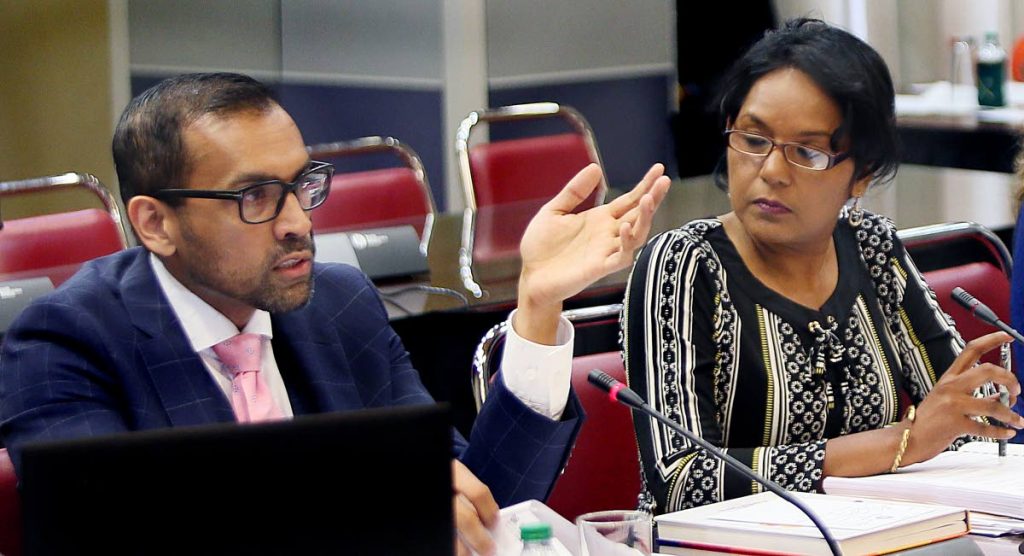Journalists ask cybercrime JSC: ‘Why do you want to jail us?’

THE Media Association of TT (MATT) made its second appearance before the Joint Select Committee of Parliament for the Cybercrime Bill on Tuesday, and primary spokesperson Dr Sheila Rampersad had just one question for the committee and its chairman, Attorney General Faris Al-Rawi: “Why do legislators wish to jail me and my colleagues?”
“This Bill creates criminal offences, added to the civil remedies already in place. A building cannot be arrested, charged and jailed. Nor can a publication or a broadcast. People are arrested, charged and jailed. The consequence of this Bill in its present form will put in jail journalists and other individuals and organisations who function, in the public interest, to expose to the public evidence of corruption and other wrongdoings. MATT must ask why legislators wish to jail those of us who expose wrongdoing. I have looked at stories by many of our members and most of us, including me, would fall afoul of the bill as it is currently written,” Rampersad, chairman of MATT’s standing committee on Cybercrime, said in her opening statement to the committee.
Among other things, Section 8 the Cybercrime Bill criminalises the unauthorised receipt or copying of electronic data, slapping offenders with a $1 million fine and up to three years in jail. When enforced, this means that not only will the journalist who publishes information be liable for breaking the law, but also their source. The organisation, an advocacy group for the rights of journalists, had one clear proposal to the JSC, one that it had made in 2016 but, according to Rampersad, had initially been dismissed by the Attorney General’s office for being too broad: “A public interest exemption across this bill would retain criminal accountability for mischief and malice while pre-emptively protecting the constitutional rights of all citizens, organisations and institutions engaged in nation-building through greater transparency.”
The AG immediately countered that to his recollection, the suggestion was not dismissed outright, but that he had instead suggested that MATT provide a formulation for the type of exemption. Rampersad acknowledged his statement, but said MATT stood by its claim. Al-Rawi then spent a significant part of the hearing debating legal technicalities and terminology with MATT’s counsel, Dr Emir Crowne. Crowne, for his part, reiterated MATT’s primary concern was not just for journalists, but everyone who operates in the public interest– including academics, calypsonians and trade unionists.
“There must be an understanding that journalism is not the reading of news. That’s just the tip of the iceberg. The rest of journalism is lost on the public. We don’t see it but the journalist’s process –Journalism with a capital J– is impacted when we don’t permit surreptitious disclosures. In a very formal sense the legislation is written to not impact journalism or academia, etc., but substantively that is exactly what it does.”
MATT, he said, proposed a new section for the act, which he suggested could be copy and pasted without breach of copyright: “Nothing in this act shall criminalise or is intended to criminalise acts or omissions done responsibly in the public interest.”

Comments
"Journalists ask cybercrime JSC: ‘Why do you want to jail us?’"